D-LINK DGS-3630-28SC
₫94.580.000
Mô tả D-Link DGS-3630-28SC:
Bộ chia mạng D-Link DGS-3620-28SC 20-ports Gigabit SFP, 4-port UTP 10/100/1000Mbps / SFP Combo, 4-port 10G SFP+ (H/W: A1, Rackmountable) /ESI: EU 2 round pin power cord
Categories: D-Link Switch, Thiết bị mạng D-Link
General features:
Interfaces
20 SFP ports
• 4 Combo 10/100/1000BASE-T/SFP ports
• 4 SFP+ ports
Optional Redundant Power Supply
• DPS-500
Console Port
• RJ-45
Management Port
• 10/100BASE-T
Alarm Port
• 1
SD Card Slot
• 1
Performance
• Switch Fabric: 128 Gbps
• Packet Forwarding Rate: 95.24 Mbps
• Packet Buffer: 2 MB
• MAC Address Table: 32K entries
• IPv4 Routing Table: 12K entries
• IPv6 Routing Table: 6K entries
• IPv4 Forwarding Table: 8K entries
• IPv6 Forwarding Table: 4K entries
• Jumbo Frame Size: 13000 bytes
Software Features
Stackability
• Virtual stacking support
– D-Link Single IP Management
– Up to 32 devices per virtual stack
– Up to 20G stacking bandwidth
• Physical stacking
– Supports duplex chain/ring topology
– Up to 80G stacking bandwidth
– Up to 12 units per stack
L2 Features
• MAC address table: 32K
• Flow control
– 802.3x Flow control
– HOL blocking prevention
• Jumbo frames up to 13000 bytes
• IGMP snooping
– IGMP v1/v2/v3 snooping
– Supports 2K groups
– Port/host-based
– IGMP snooping fast leave
• MLD snooping
– MLD v1 snooping
– Supports 2K groups
– Host-based MLD snooping fast leave
• Spanning tree
– 802.1D-2004 STP
– 802.1w RSTP
– 802.1Q-2005 MSTP
– BPDU filtering
– Root restriction
• Loopback detection
• 802.3ad link aggregation
• Max. 32 groups per device
– 8 Gigabit ports or 2 10-Gigabit ports per group
• Port mirroring
– Supports 4 mirroring groups
– Supports one-to-one, many-to-one, flow-based, and RSPAN mirroring
• L2 protocol tunneling
• ERPS (Ethernet Ring Protection Switching)
VLAN
• VLAN group
– Max. 4K static VLAN groups
– Max. 4K dynamic VLAN groups
– 802.1Q tagged VLAN
• Surveillance VLAN
• 802.1v protocol VLAN
• GVRP
• Double VLAN (Q-in-Q)
– Port-based Q-in-Q
– Selective Q-in-Q
• MAC-based VLAN
• VLAN trunking
• Super VLAN
• Voice VLAN
• Subnet VLAN
L3 Features
• 256 IP interfaces
• Bidirectional Forwarding Detection for OSPF/VRRP4
• Loopback interface
• Proxy ARP
• VRRP
• Gratuitous ARP
L3 Routing
• 12K routing entries shared by IPv4/v6
– Max. 12K IPv4 routes
– Max. 6K IPv6 routes
• 8K L3 forwarding entries shared by IPv4/v6
– Max. 8K IPv4 entries
– Max. 4K IPv6 entries
• 256 static routing entries for IPv4, 128 entries for IPv6
• Supports ECMP/WCMP
• Policy-based routing
• RIP v1/v2
• OSPF
– OSPF v2
– OSPF passive interface
– Stub/NSSA area
– OSPF equal cost route
Multicasting
• 2K multicast groups
• PIM-DM
• PIM-SM
• PIM sparse-dense mode
• IGMP v1/v2/v3
QoS (Quality of Service)
• 802.1p Class of Service (CoS)
• 8 queues per port
• Queue handling
– Strict
– Weighted Round Robin (WRR)
– Strict + WRR
• WRED
• 802.1Qbb priority-based flow control on 10G port
• CoS based on
– Switch port
– VLAN ID
– 802.1p priority queues
– MAC address
– IPv4/v6 address
– DSCP
– Protocol type
– IPv6 traffic class
– IPv6 flow label
– TCP/UDP port
– User-defined packet content
• Supports following actions for flows:
– Remark 802.1p priority tag
– Remark TOS/DSCP tag
– Bandwidth control
– Flow statistics
– Committed Information Rate (CIR), min. granularity 1 Kbps.
• Bandwidth control
– Port-based (ingress/egress, min. granularity 8 Kbps)
– Flow-based (ingress, min. granularity 8 Kbps)
• Time-based QoS
ACL (Access Control List)
• Ingress ACL: support up to 6 profiles and 256 rules per profile
• Egress ACL: support up to 4 profiles and 128 rules per profile
• ACL based on
– 802.1p priority
– VLAN ID
– MAC address
– Ether type
– IPv4/v6 address
– DSCP
– Protocol type
– TCP/UDP port number
– IPv6 traffic class
– IPv6 flow label
– User-defined packet content
• ACL statistics
• Time-based ACL
Green
• Power saving by link status
• Power saving by cable length
• Power saving by LED shut-off
• Power saving by port shut-off
• Power saving by system hibernation
• 802.3az Energy-Efficient Ethernet
Security
• SSH v2
• SSL v1/v2/v3
• Port security for up to 3328 MAC addresses for port/system/VLAN
• Broadcast/multicast/unicast storm control
• Traffic segmentation
• UDP helper
• IP-MAC-port binding
– ARP packet inspection
– IP packet inspection
– DHCP snooping
– DHCPv6 and NDP snooping
– Supports up to 500 address binding entries per device
• D-Link safeguard engine
• DHCP server screening
• CPU interface filtering
• ARP spoofing prevention
• BPDU attack protection
• Unicast reverse path forwarding
• DoS attack prevention
AAA
• 802.1X
– Port-based access control
– Host-based access control
– Dynamic VLAN assignment
• Web-based Access Control (WAC)
– Port-based access control
– Host-based access control
– Dynamic VLAN assignment
• MAC-based Access Control (MAC)
– Port-based access control
– Host-based access control
– Dynamic VLAN assignment
• Japan Web-based Access Control (JWAC)
– Host-based access control
• Microsoft® NAP
– Supports 802.1X NAP
– Supports DHCP NAP
• Guest VLAN
• RADIUS and TACACS+ authentication for switch access
• 4-Level user account
Management
• Web-based GUI
• Command Line Interface (CLI)
• Telnet server
• Telnet client
• TFTP client
• ZModem
• SNMP v1/v2c/v3
• SNMP trap
• System log
• RMON v1
– Supports 1,2,3,9 groups
• RMON v2
– Supports ProbeConfig group
• Scheduled Reboot4
• sFlow
• LLDP/LLDP-MED
• BootP/DHCP client
• DHCP auto-configuration
• DHCP relay
• DHCP relay option 60; 61
• DHCP relay option 82
• DHCP server
• Flash file system
• Multiple images
• Multiple configurations
• CPU monitoring
• IPv4/IPv6 DNS client
• Debug command
• SNTP
• ICMPv6
• DHCPv6 client
• DHCPv6 relay
• DHCPv6 server
• DHCPv6 prefix delegation
• Trusted host
• MTU setting
• Microsoft® NLB support
• Secure FTP
• FTP client4
• DHCP client option 124
OAM
• 802.3ah Ethernet link OAM
• Cable diagnostics
• 802.3ah D-Link extension: D-Link Unidirectional Link Detection (DULD)
• IEEE1588 Precision Time Protocol (PTP)
MIB/IETF Standards
• RFC1213 MIB-II
• RFC1493, 4188 bridge MIB
• RFC1907 SNMPv2 MIB
• RFC2571~2576 SNMP MIB
• RFC1271, 2819 RMON MIB
• RFC2021 RMON v2 MIB
• RFC1398, 1643, 1650, 2358, 2665 Ether-like MIB
• RFC2668 MAU MIB
• RFC2674, 4363 802.1p MIB
• RFC2233, 2863 IF MIB
• RFC2618 RADIUS authentication client MIB
• RFC1724 RIP v2 MIB
• RFC1850 OSPF v2 MIB
• RFC2096, 4292 IP forwarding table MIB (CIDR)
• RFC2787 VRRP MIB
• RFC2932 IPv4 multicast routing MIB
• RFC2934 PIM MIB for IPv4
• RFC2620 RADIUS accounting client MIB
• RFC2933 IGMP MIB
• RFC2925 ping MIB
• RFC2925 traceroute MIB
• D-Link private MIB
• RFC768 UDP
• RFC783 TFTP
• RFC 791 IP
• RFC 792 ICMP
• RFC 793 TCP
• RFC 826 ARP
• RFC854 Telnet
• RFC951, 1542, 2131 BootP
• RFC2068, 2618 HTTP
• RFC2338 VRRP
• RFC2529, 3053, 3056 IPv6 Tunnel
• RFC2138 RADIUS
• RFC2139 RADIUS Accounting
• RFC1492 TACACS
• RFC3176 sFlow
• RFC2598 DiffServ Expedited Forwarding (EF)
• RFC2460 IPv6
• RFC2461, 4861 IPv6 Neighbor Discovery (ND)
• RFC2462, 4862 IPv6 stateless address autoconfiguration
• RFC1981 IPv6 path MTU discovery
• RFC4213 IPv4/IPv6 dual stack
Enhanced Image (EI) Features
L3 Features
• IPv6 tunneling
– Static
– ISATAP
– GRE
– 6to4
L3 Routing
• RIPng (IPv6)
• OSPF v3 (IPv6)
• BGP v4
• BGP+4
Multicasting
• PIM-SM v6
• DVMRP v3
OAM
• 802.1ag Connectivity Fault
• ITU-T Y.1731 Management (CFM)<
Physical
MTBF
• 298263 hours
Acoustics
• 49.9 dB maximum
Heat Dissipation
• 144.2 BTU/hr
Power Input
• 100 to 240 V AC, 50/60 Hz
Max Power Consumption
• 43.4 W
Dimensions
• 441 x 310 x 44 mm (17.36 x 12.20 x 1.73 inches)
Weight
• 4.10 kg (9.04 lbs)
Ventilation
• Smart fan (> 40 °C (104 °F): high speed; < 35 °C (95 °F): low speed)
Operating Temperature
• 0 to 50 °C (32 to 122 °F)
Storage Temperature
• -40 to 70 °C (-40 to 158 °F)
Operating Humidity
• 0% to 90% RH
Storage Humidity
• 5% to 90% RH
Emission (EMI)
• FCC Class A, CE Class A, VCCI Class A, IC, C-Tick
Safety
• CB, cUL, LVD
Certifications
• IPv6 Ready Logo Phase 2
Có thể bạn quan tâm
₫2.311.000
₫6.652.000
₫2.420.000
₫2.420.000
₫1.542.000
₫7.558.000
₫12.170.000
₫1.230.000
₫2.652.000
₫2.540.000
₫21.902.000
₫4.869.000
Chưa có bình luận nào


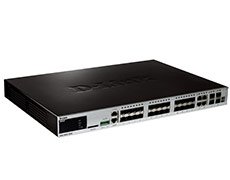
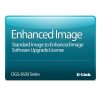

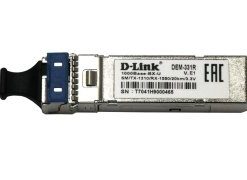
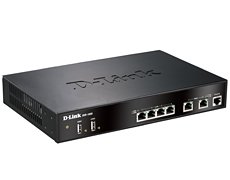

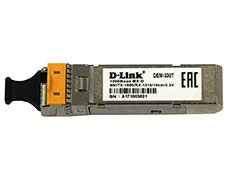
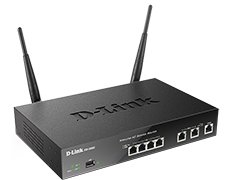
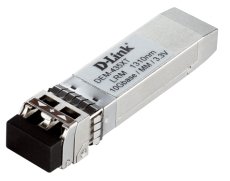
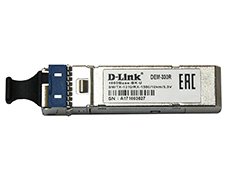
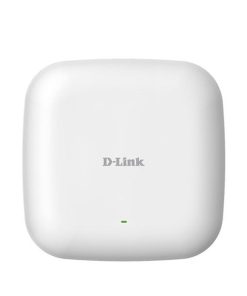

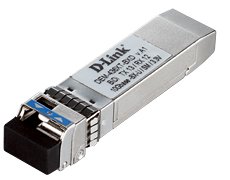
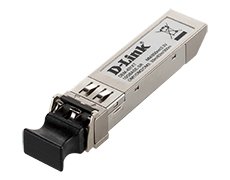
Đánh giá D-LINK DGS-3630-28SC
There are no reviews yet.